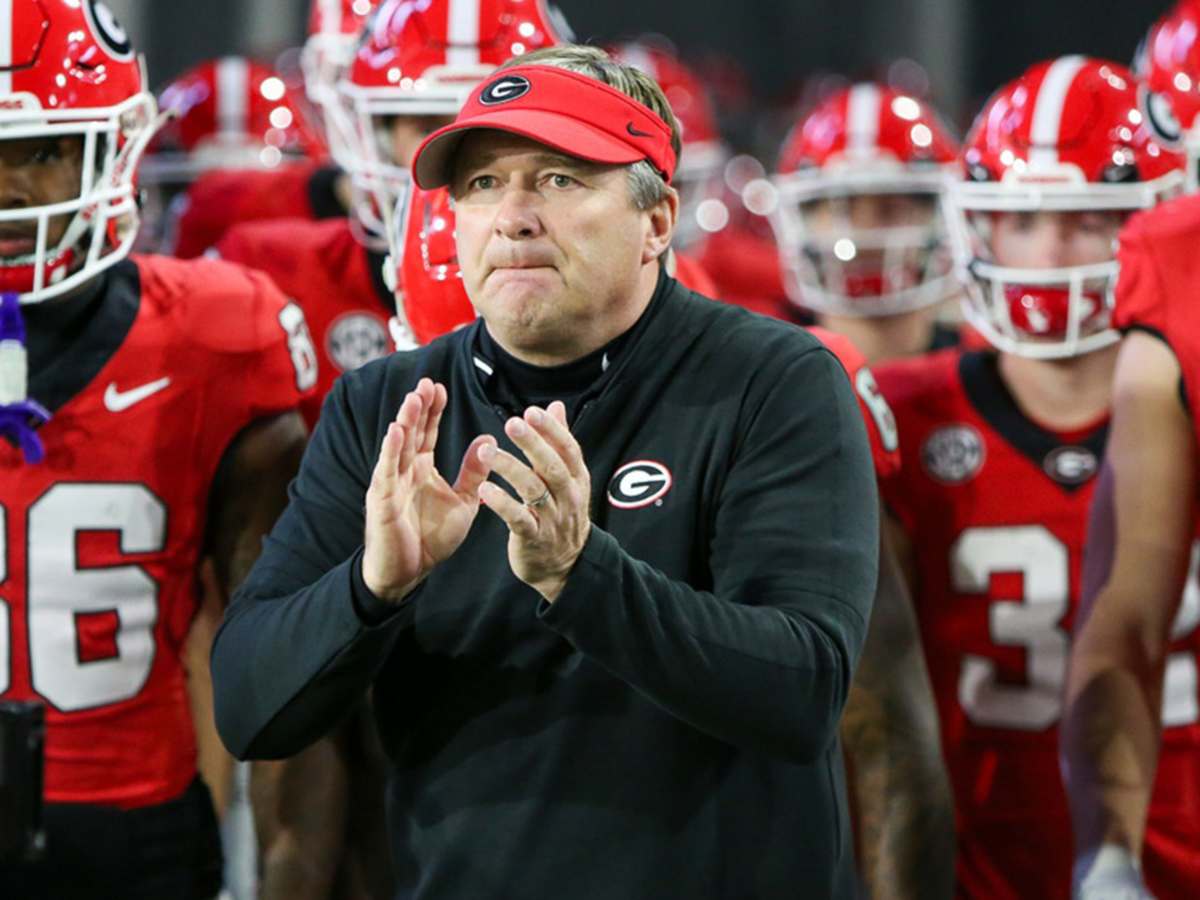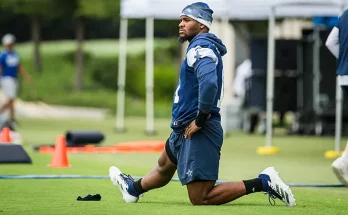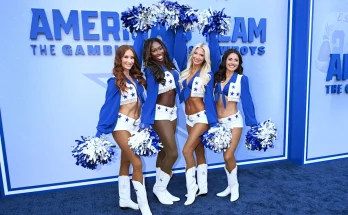Kirby Smart comments on the numerous driving violations involving Georgia football players
Kirby Smart, head coach of the University of Georgia’s football program, has long been considered one of the top figures in college football. His leadership has helped elevate the Georgia Bulldogs into a dominant force in the sport, winning national championships and producing top NFL talent. However, his tenure at Georgia has also been marked by controversy, particularly surrounding the behavior of his players off the field. One issue that has gained considerable attention in recent years is the prevalence of driving violations among Georgia football players.
The frequency of such incidents has prompted Smart to speak out on multiple occasions, offering both public apologies and insight into the measures the program is taking to address the issue. The driving violations involving Georgia players have ranged from minor infractions, such as speeding tickets, to far more serious offenses, including reckless driving and even fatal accidents. With each new incident, Smart has found himself in a difficult position, balancing the need for player discipline with the realities of managing a high-profile college football program.
The Scale of the Problem
In 2023, the tragic car accident that claimed the lives of Georgia offensive lineman Devin Willock and recruiting staffer Chandler LeCroy brought the issue of driving behavior to the forefront. The two were involved in a high-speed crash in January, which ultimately resulted in both deaths. Jalen Carter, a defensive tackle on the team, was also implicated in the accident, with reports indicating that he and LeCroy were allegedly racing at the time of the crash. A toxicology report revealed that LeCroy’s blood alcohol content was more than twice the legal limit. This incident was a turning point for Georgia football, leading to renewed scrutiny of the program’s approach to addressing player behavior both on and off the field.
Prior to this, there had been other incidents involving Georgia football players and driving violations. These ranged from speeding tickets to more serious offenses like reckless driving, often occurring at night or in situations where players were attempting to show off or speed excessively. However, it was the Willock-LeCroy crash that forced Kirby Smart and the Georgia program to confront the issue in a much more serious and public way. The tragic nature of the event and the involvement of multiple players led to increased pressure on Smart to take stronger action to prevent similar incidents from occurring in the future.
Kirby Smart’s Initial Response
In the aftermath of the January 2023 crash, Kirby Smart made a series of public statements expressing his profound disappointment in the events surrounding the tragedy. Smart’s initial comments focused on the emotional and personal toll the incident had taken on him and the team. Smart expressed his heartbreak over the loss of Willock, a beloved member of the team, and LeCroy, who had worked closely with the players as part of Georgia’s recruiting staff. At the same time, he emphasized that the program would need to implement new measures to address the driving behavior of its players.
Smart was quick to recognize the magnitude of the situation, acknowledging that while his program had previously addressed off-field behavior, including driving, the tragic deaths of Willock and LeCroy had exposed significant gaps in the education and discipline surrounding such issues. He committed to enhancing educational programs for players, particularly focusing on the dangers of reckless driving, impaired driving, and the importance of making better choices when behind the wheel.
Despite Smart’s sincere efforts to address the issue, it wasn’t long before more reports of driving violations involving Georgia players emerged. These incidents ranged from players being arrested for excessive speeding to others being cited for driving without a license. Each new report raised questions about the effectiveness of the measures Smart had implemented and whether the program was doing enough to curb the behavior.
Disciplinary Actions and New Policies
In response to these repeated violations, Smart and the Georgia football program took a series of disciplinary actions aimed at curbing the reckless behavior. One of the first steps taken was the introduction of player suspensions following serious driving infractions. For example, wide receiver Nitro Tuggle and offensive lineman Marques Easley were suspended indefinitely after Tuggle was arrested for speeding and reckless driving. This marked a clear message from Smart that such behavior would not be tolerated and that players would face real consequences for their actions.
The suspension policy was not limited to one-off infractions, but extended to a broader approach where players who violated the team’s code of conduct in regard to driving faced significant repercussions. Smart emphasized that these measures were meant not only to punish, but also to serve as a deterrent to other players who might be tempted to engage in similar risky behaviors. The disciplinary measures were designed to remind players that they had a responsibility to represent the program in a professional manner both on and off the field.
In addition to suspensions, Smart also began implementing financial penalties through the use of Name, Image, and Likeness (NIL) collectives. As part of the new NIL era in college sports, athletes now have the opportunity to profit from their name, image, and likeness, which has created new avenues for coaches to influence player behavior. In the case of driving violations, Smart and his staff began to levy fines through the Classic City Collective, the university’s NIL entity. These fines were designed to be substantial enough to grab the attention of players and serve as a financial deterrent.
The use of NIL collectives as a punishment mechanism was a unique and innovative approach that made use of the changing landscape of college athletics. Smart pointed out that while the fines may not be as severe as suspensions or dismissals from the team, they had the potential to create a strong incentive for players to behave responsibly. Players who made poor decisions when driving would be forced to give up a portion of the money they earned through NIL deals, which in some cases could amount to significant sums.
Educational Programs and Support Systems
In addition to the punitive measures, Smart also placed a heavy emphasis on player education. Recognizing that many of the players entering his program were young adults with limited experience behind the wheel, Smart implemented a series of educational programs designed to teach them about the risks and responsibilities associated with driving.
These programs included mandatory defensive driving courses, which Smart insisted upon for all incoming freshmen. The courses covered topics such as the dangers of speeding, impaired driving, and distracted driving, as well as strategies for making safer choices behind the wheel. The program also partnered with local driving schools to provide hands-on training and simulation experiences. Smart emphasized that the goal of these programs was not to punish, but to equip players with the knowledge and skills they needed to make better decisions when driving.
While the defensive driving courses were a step in the right direction, Smart acknowledged that there were still issues with accountability among certain players. Some players, despite undergoing training, continued to make reckless decisions behind the wheel. This led to Smart expanding his focus on the program’s leadership structure, encouraging senior players and team captains to take more responsibility for ensuring that their teammates were following the rules. The goal was to create a culture of peer accountability, where players held one another to a high standard of conduct.
Smart’s Public Statements on the Issue
As the number of driving violations continued to rise, Smart became more vocal in his public comments on the issue. At the 2023 SEC Media Days, he addressed the ongoing concerns, acknowledging the frustration many fans and commentators felt regarding the repeated offenses. He expressed his deep disappointment, noting that the incidents reflected poorly on the program and overshadowed the positive achievements of the team. However, Smart also defended the actions that had been taken, reiterating that the program had implemented a comprehensive strategy to address the issue.
Smart emphasized that the program’s approach was multifaceted, including a combination of education, discipline, and financial penalties, as well as a stronger focus on leadership within the team. He argued that no other program in college football had implemented such a comprehensive response to off-field behavior and expressed confidence that, over time, these efforts would lead to a change in the culture surrounding Georgia football.
Despite his optimism, Smart also admitted that the program was not perfect and that there was still work to be done. He acknowledged that while the efforts made thus far had been substantial, the recurrence of driving violations was a reminder that changing behavior, particularly among young adults, was a slow and challenging process. Nevertheless, Smart remained committed to improving the situation, ensuring that his players understood the consequences of their actions and the responsibility they carried as representatives of the Georgia football program.
The Road Ahead: Challenges and Opportunities
As the Georgia football program continues to grapple with the issue of driving violations, Kirby Smart faces an ongoing challenge in managing his players both on and off the field. The tragic events of 2023 served as a wake-up call, but the program’s efforts to address the issue are still evolving. With the continued rise of NIL deals, Smart’s reliance on financial penalties may become a more prominent aspect of his strategy, as NIL opportunities provide new avenues for disciplining players.
However, Smart also faces pressure from outside sources, including the media and fans, who continue to question whether enough is being done to curtail reckless driving among his players. The deaths of Willock and LeCroy have cast a long shadow over the program, and Smart is keenly aware of the responsibility he has to ensure that such a tragedy never happens again.
As Kirby Smart navigates these difficult waters, his commitment to player safety, discipline, and education remains central to the program’s efforts. While there is no simple solution to the problem, Smart’s leadership will be crucial in determining how Georgia moves forward in addressing these issues. Whether through stricter policies, stronger educational programs, or continued peer accountability, Smart’s handling of the situation will serve as a critical benchmark for other programs facing similar challenges.
In the end, the issue of driving violations is not just about discipline but about the broader responsibility that coaches and athletic programs have to their athletes. It is a responsibility that extends beyond the football field and into the lives of young men who are still learning how to navigate the complexities of adulthood. As Smart continues to confront these challenges, his actions will ultimately shape the future of Georgia football and the way college programs handle issues of player conduct.



